The Citizens’ Parliament experiment brought together 671 Finns to discuss four citizens’ initiatives. The group, which was as representative of Finns as possible, heard about the issues from experts and discussed them in small groups. The aim of the Citizens’ Parliament is to produce well-considered opinions to support the Parliament’s decision-making.
The Citizens’ Parliament was organised by the Åbo Akademi University’s Centre of Excellence project FutuDem in co-operation with the Parliament, Tampere University, Sitra and Stanford University.
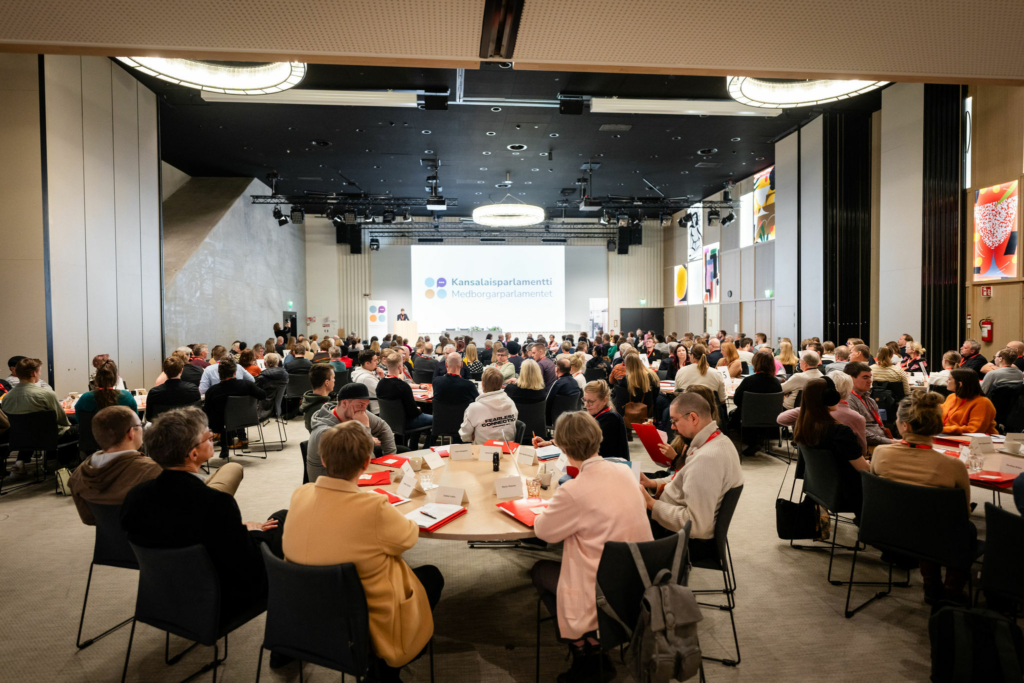
The Citizens’ Parliament project explores, among other things, whether it is possible to have constructive and informed debate on complex political questions online in a similar way to face-to-face discussions.
Participants in the Citizens’ Parliament were randomly assigned to three different discussion environments: an automatically moderated online discussion, a human-moderated online discussion and a human-moderated face-to-face discussion in the same location.
Opinions shifted towards a more liberal drug policy and more sustainable fuel pricing in all discussion environments. Support experimentally permitting drug use and legalising cannabis increased, while support for moderating fuel tax and lifting the excise duty on diesel fell.
“When the discussion is conducted according to the methods of deliberative democracy, the type of discussion environment does not seem to significantly impact the development of opinions or the participants’ experience of the discussions. Almost all of the participants considered the Citizens’ Parliament to have been a success,” says Professor Kimmo Grönlund from Åbo Akademi.
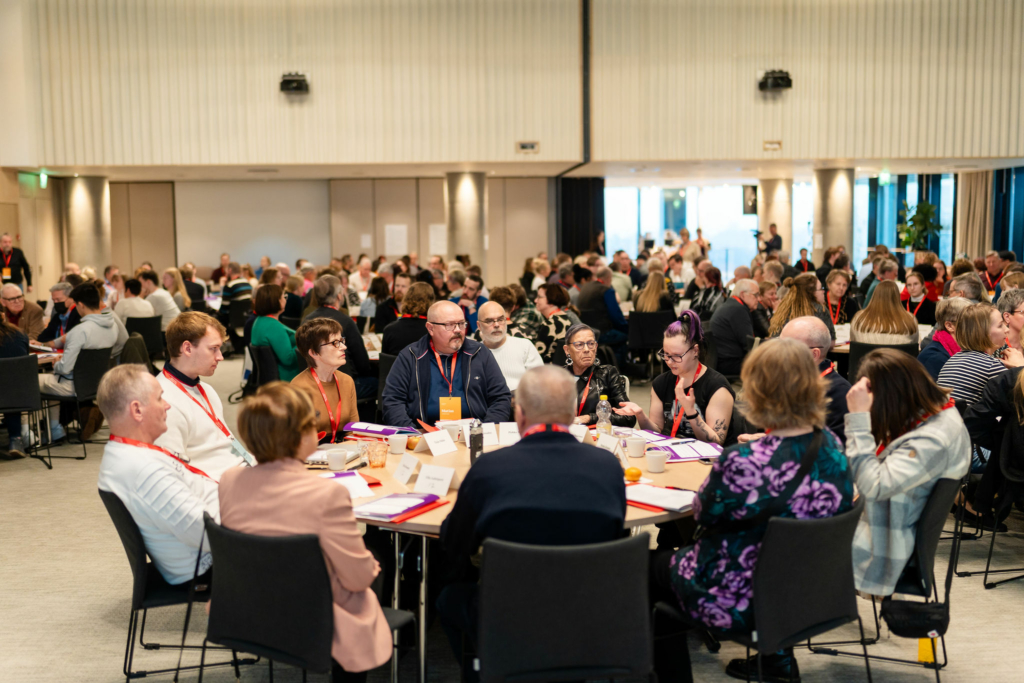
The project was the first test of whether deliberative citizen debate could support the work of the Parliament in reviewing citizens’ initiatives.
“Our results are particularly promising because organising an automatically moderated online discussion is considerably less expensive. An automatically moderated online discussion is therefore a viable method for involving people and strengthening Finnish democracy,” concludes Professor Kaisa Herne from the University of Tampere.
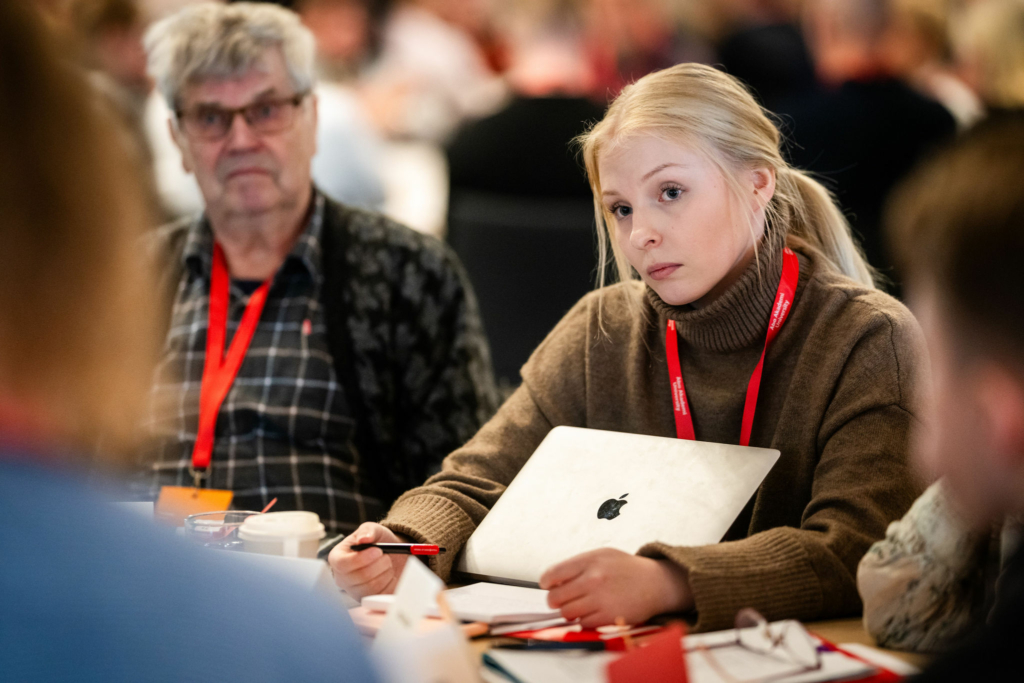
Above all, the Citizens’ Parliament experiment aims to develop the Finnish democracy. Voter turnout in Finland is at a reasonable level in Finland, but not the best by international comparison. Voter turnout is also highly differentiated: older age groups and the highly educated are more active voters. The appeal of participation through political parties is declining among Finns.
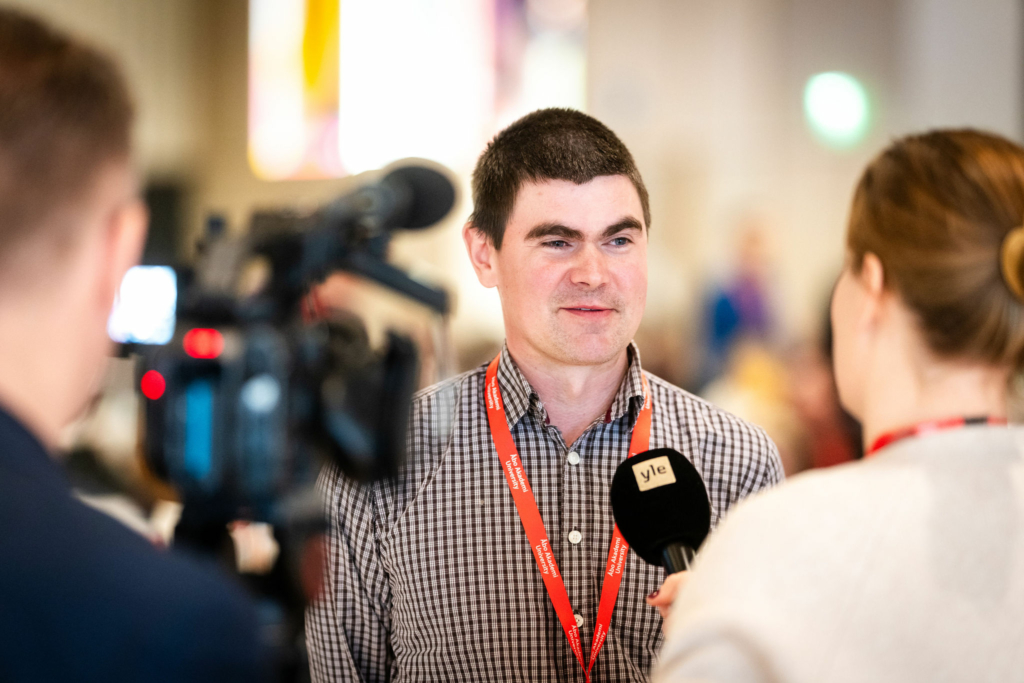
Citizens’ parliaments selected at random could also be a way of hearing from those who would not otherwise participate. International studies have also found out that the public tends to trust views or recommendations that have emerged from deliberative citizens’ discussion.
“Deliberative citizens’ discussions could enrich decision-making at all levels of government. I am pleased that similar citizens’ panels are currently also being experimented with by wellbeing services counties and some municipalities,” says Hannu-Pekka Ikäheimo, Project Director at Sitra.
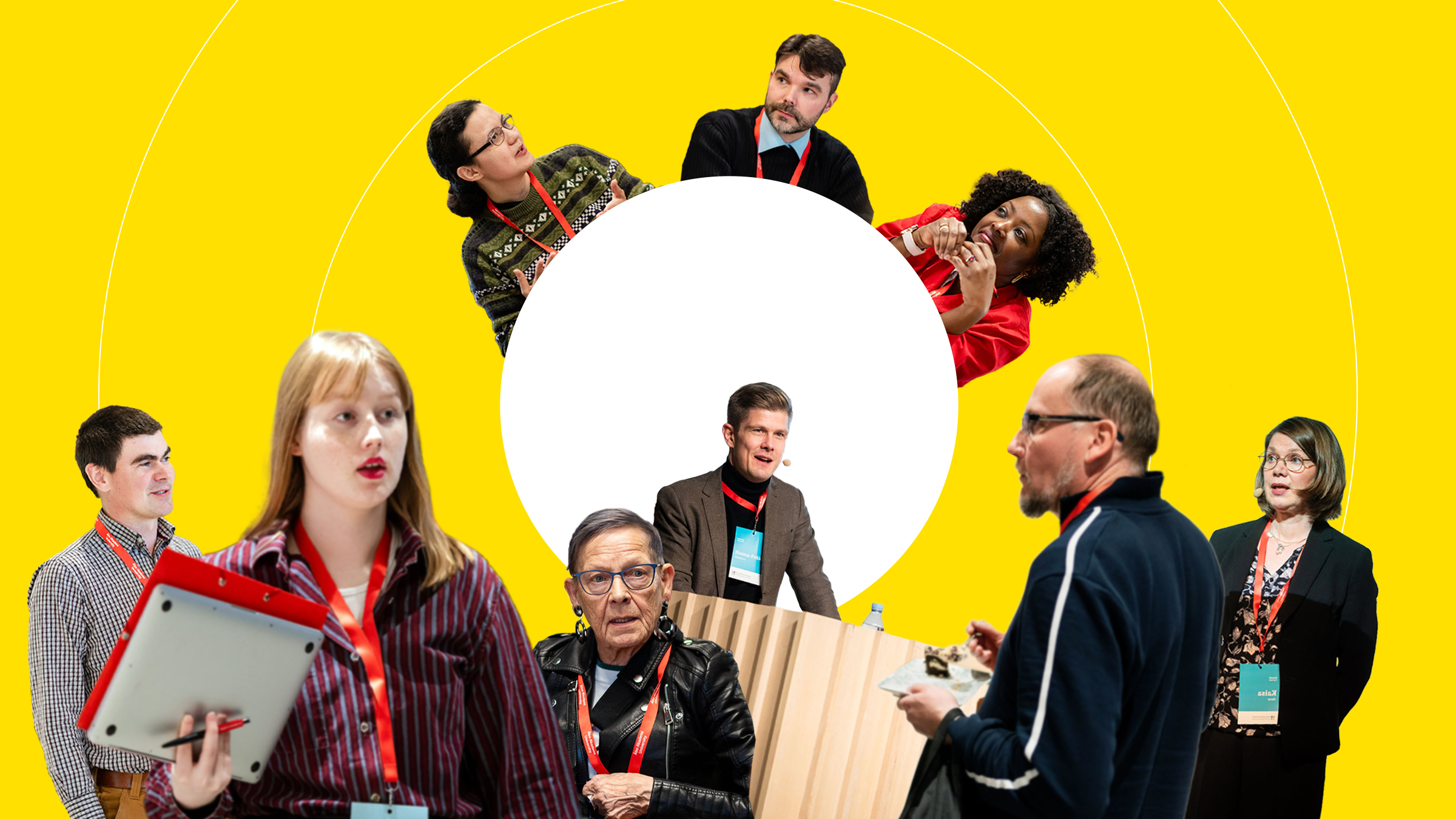






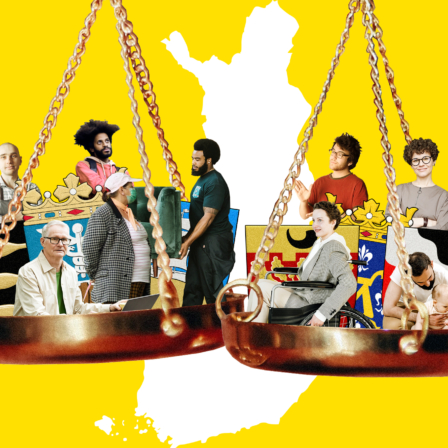
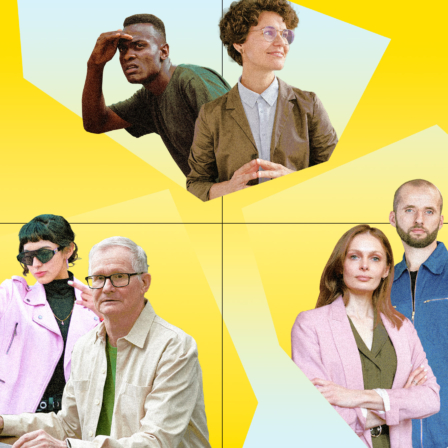
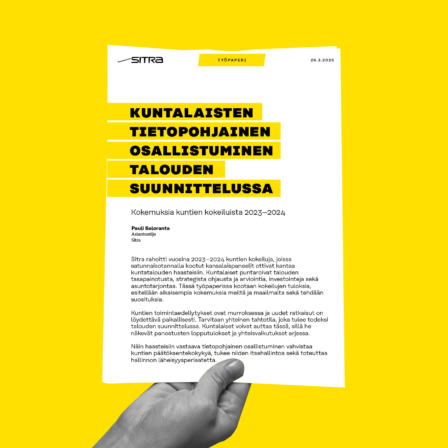




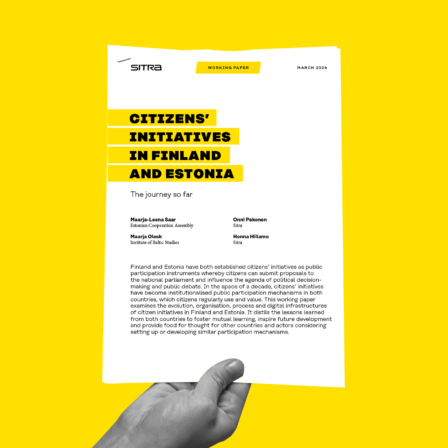
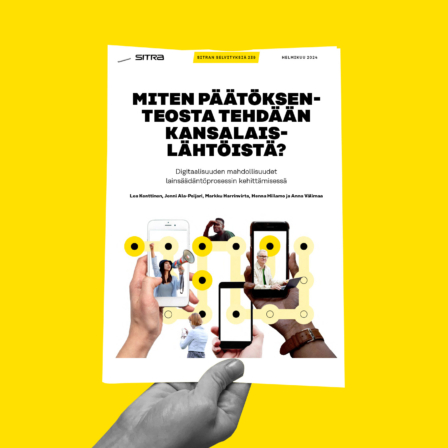



Recommended
Have some more.